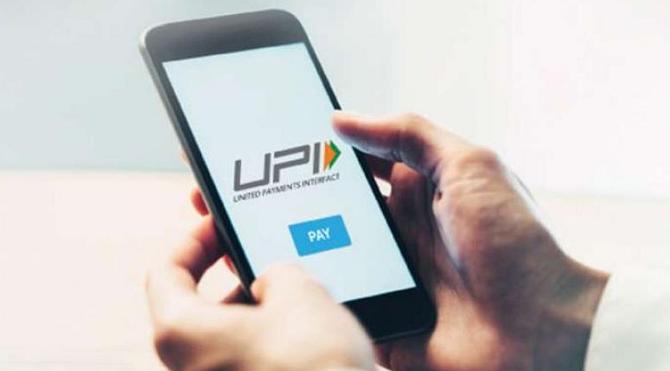To increase the adoption of credit on United Payments Interface (UPI), National Payments Corporation of India (NPCI) is looking at an interchange fee for transactions lower than that for a credit-card transaction.

Sources in the know said these charges could be 1-1.2 per cent.
Fintech participants concur with the view that the interchange fee is expected to be lower than that for a credit-card transaction.
Credit card transactions generally have an interchange fee of 1.8-2 per cent.
"The interchange basically varies by the merchant category.
"I believe the interchange fee for credit lines on UPI should be lower than that for credit cards, but how much lower is still to be clarified,” said Mohit Bedi, chief business officer (CBO) and co-founder, Kiwi, a credit on UPI fintech.
At present, there is no interchange fee defined by NPCI for the credit line on UPI.
A credit line on UPI is a pre-sanctioned loan from banks.
The uptake of credit lines on UPI has not picked up because there is no clarity yet on the interchange fee between banks and NPCI.
Axis Bank, HDFC Bank, ICICI Bank, Punjab National Bank, and State Bank of India offer the service, according to NPCI’s website.
The facility is also live on apps such as BHIM, Google Pay, Paytm, and Payzapp.
NPCI does not disclose the volumes of transactions for credit lines on UPI.
Industry sources said the adoption of the service had been slow since interchange fees had not been finalised yet.
“All the major banks in the country are ready with their systems to extend the facility to customers, but everybody is waiting for the commercials to be decided first.
"The interchange for the credit line on UPI transactions will be lower than that for a credit card,” a person in the know told Business Standard.
NPCI did not respond to queries sent by Business Standard.It announced the launch of the credit line on the UPI facility in September last year. Customers can access pre-sanctioned credit from banks using the UPI rails.
“Since NPCI has not issued details about the commercials yet, it cannot push the market to adopt the credit line on the UPI facility yet,” a source said.
Bedi from Kiwi said banks would scale up their partnerships once the fee was finalised.
“The reason partnerships haven’t come up is that the revenue model is dependent on the interchange for this product.
"Once that is decided, partnerships will start scaling up,” he added.
Similarly, a source quoted above added that NPCI was looking at two ways to arrive at a decision on the interchange fee for credit on UPI.
“One is that when these transactions will be of an interest-bearing nature, the interchange will be lower, whereas, on the other hand, for non-interest bearing transactions, the interchange fee will be higher,” the person said.
An industry executive described how this worked.
“My understanding is that after a transaction, for the first 15 days a customer does not bear any interest, but is charged 10-12 per cent thereafter.
"The interchange fee will be different from those transactions where interest is applied since day zero,” the person said.
The executive further said banks earned more when interest was levied from day zero, implying that the interchange fee was lower in such cases.
“Under the interest-free credit period there is an impact from the cost of funds.
"In the other case, you would generally get a lower interchange since you are making money from charging the interest from zero day,” the person added.
Meanwhile, a source quoted above added that the Reserve Bank of India’s decision to hike risk weighting last year could be another reason why banks were going slow on partnerships.











